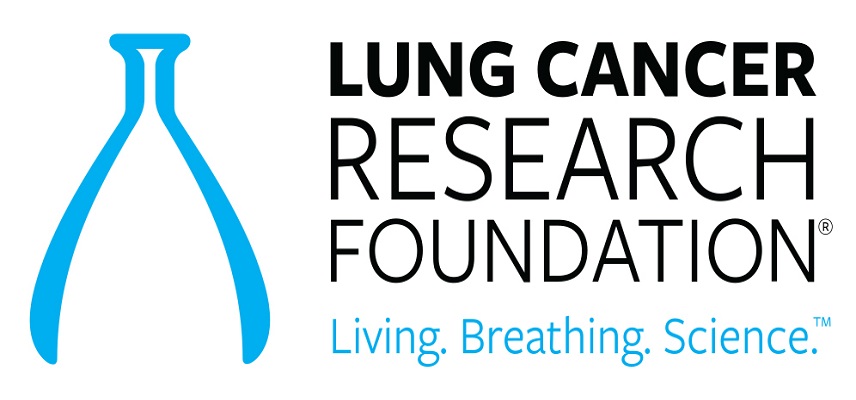Lung Cancer Research Foundation announces new research collaboration with Bayer Pharma
Overview
The Lung Cancer Research Foundation (LCRF) announced that its collaboration with Bayer Pharmaceuticals to fund two research grants focused on innovative strategies to advance understanding and management of lung cancers harbouring HER2 mutations and/or other HER2 alterations.
Aim for Collaboration
This collaboration seeks to address important mechanistic questions and developmental therapeutics across the care continuum for HER2-mutant NSCLC, and has the potential to improve patient outcomes.
LCRF Scientific Advisory Board Chair
- LCRF is delighted to collaborate with Bayer to identify and support outstanding lung cancer research projects that will help develop treatments for this specific set of lung cancers,” says Kathryn O’Donnell, PhD, LCRF Scientific Advisory Board chair.
- Expanding the treatment options available to patients affected by HER2 mutations or alterations is an important and exciting area in lung cancer research.
Words from Bayer’s Pharmaceuticals Division
We are delighted to encourage and support groundbreaking research via this new LCRF initiative. This collaboration underscores our ongoing commitment to patients living with lung cancer, and our unwavering drive to advance precision oncology in disease areas with the highest unmet needs,” said Abdelali Majdi, MD, head of global medical affairs precision oncology & pipeline at Bayer’s Pharmaceuticals Division.
About Lung Cancer
- Lung cancer is responsible for more deaths worldwide than any other cancer, accounting for an estimated 130,180 deaths annually in the United States alone.
- Globally, there are approximately 1.8 million new cases of lung cancer every year and over 1.6 million deaths.
- The last 10 to 15 years have seen accelerated clinical trials and regulatory approvals of targeted therapies for non-small cell lung cancer (NSCLC) in part due to advances in molecular profiling of tumours.
Therapies for Oncogenic Drivers
- Many of these targeted therapies are directed against oncogenic drivers.
- The HER family of tyrosine kinases include HER1 (epidermal growth factor receptor [EGFR] or ERBB1), HER2 (HER2/neu or ERBB2), HER3, and HER4.
- EGFR mutations were one of the first oncogenic drivers that were successfully targeted with the use of tyrosine kinase inhibitors.
Available Treatments
- Despite substantial progress in this area, available treatments are generally not curative, and resistance invariably develops.
- Twenty years ago, HER2 mutations were also identified as potential oncogenic drivers in lung cancer.
- Activating mutations of HER2 (mostly exon 20 insertions, such as HER2 YVMA) occur in up to 4% of NSCLC.
- Until recently, developing effective HER2-targeted therapies for lung cancer has been a challenge.
Immunotherapeutic Strategies for LC
- Immunotherapeutic strategies have not been successful in the treatment of lung cancers with genomic alterations such as HER2 mutations.
- It is of vital importance that there is a better understanding of the mechanism of tumour response and resistance.
- Moreover, given that therapeutic options available to date are not curative, there is a need for novel approaches to treat HER2-mutant lung cancers.
LCRF | Bayer Lung Cancer Research Award
The LCRF | Bayer Lung Cancer Research Award will focus on the science behind HER2 alterations as oncogenic drivers of malignancy and/or the development of novel therapeutic approaches for patients with tumours harbouring HER2 mutations and/or other HER2 alterations.
About LCRF
- The Lung Cancer Research Foundation (LCRF) is the leading nonprofit organization focused on funding innovative, high-reward research with the potential to extend survival and improve quality of life for people with lung cancer.
- LCRF’s mission is to improve lung cancer outcomes by funding research for the prevention, diagnosis, treatment, and cure of lung cancer.

Optimize Your trial insights with Clival Database.
Are you exhausted from the uncertainty of trial insights pricing? Clival Database ensures the clarity in the midst of the global scenario for clinical trials to you.Clival Database is one of the best databases that offers an outstanding number of clinical trial data in terms of 50,000+ molecules and from primary regulatory markets as well as new entrants like Indian and Chinese markets.
With Clival, you get accurate positioning of historical sales data, patent database, company profiling, safety & efficacy, and prediction of launch of new innovative molecules helping you to align your research and driving down the cost.
To add value, we further break down our analytics for you so that improving your operational effectiveness; optimizing your clinical trials; and offering you accurate and high-quality data at lowest possible prices becomes possible.
Elevate your trial success rate with the cutting-edge insights from Clival database.
Check it out today and make more informed sourcing decisions! Learn More!







